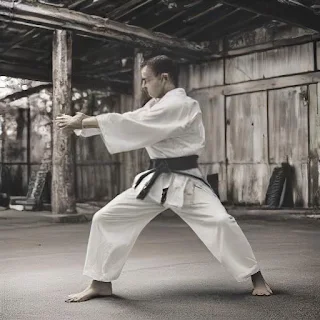How to Practice Martial Arts in an Effective Way?
Practicing martial arts effectively requires a blend of discipline, proper technique, mental focus, and continuous learning. Below are some essential tips and interactive tools to help you maximize your martial arts training.
1. Set Clear Goals
Define what you want to achieve with your martial arts training. Whether it's improving physical fitness, learning self-defense, or mastering a particular style, setting clear goals will help you stay focused and motivated. Write down your goals and track your progress regularly.
Interactive Tool: Use a goal-setting app like Habitica to gamify your progress and stay on track. Habitica turns your goals into a game, rewarding you for achieving milestones and keeping you engaged.
2. Find the Right Instructor
A knowledgeable and experienced instructor can make a significant difference in your training. Look for someone who not only possesses technical skills but also has a teaching style that matches your learning preferences. Don’t hesitate to attend trial classes with different instructors before making your decision.
Interactive Tool: Participate in online forums or communities like Reddit’s r/martialarts to read reviews and get recommendations on instructors in your area. Engaging with the community can provide valuable insights and firsthand experiences from fellow martial artists.
3. Focus on Fundamentals
Mastering the basics is crucial for any martial artist. Spend ample time on foundational techniques such as stances, strikes, and blocks. These fundamental skills will form the bedrock of your more advanced training.
Interactive Tool: Use YouTube channels like "Martial Arts Journey" that offer detailed tutorials on basic techniques. Bookmark and revisit these videos as part of your practice routine, ensuring you’re performing each move correctly.
4. Cross-Training
Incorporating different styles and disciplines into your training can enhance your overall skill set. For example, combining Brazilian Jiu-Jitsu with Muay Thai can improve both your ground and stand-up game. Cross-training also helps prevent burnout by adding variety to your routine.
Interactive Tool: Join a virtual dojo or online training platform such as Gracie University for Brazilian Jiu-Jitsu or the Muay Thai Guy for striking techniques. These platforms offer structured courses that you can follow at your own pace.
5. Mental Conditioning
Martial arts is as much about mental strength as it is about physical ability. Practices such as meditation, visualization, and breathing exercises can improve your focus, reduce stress, and enhance your performance.
Interactive Tool: Apps like headspace or Mindfulness offer guided meditation sessions specifically designed for athletes, helping you build mental resilience. Incorporating these practices into your routine can improve your overall training experience.
6. Consistent Practice
Consistency is key in martial arts. Make a training schedule and stick to it, ensuring you allocate regular time for practice. Even short, daily sessions can be more effective than sporadic, intensive workouts.
Interactive Tool: Use a fitness tracking app like Weighlosscoach to log your training sessions and monitor your consistency. Seeing your progress over time can be a great motivator and help you stay committed to your training.
7. Spar and Compete
Sparring and competing allow you to apply what you’ve learned in a realistic setting. These experiences help you understand your strengths and areas that need improvement. Always spar with a partner who matches your skill level to ensure safety and mutual growth.
Interactive Tool:Engage with online sparring communities or apps like Sparring Pro to find a partners and track your sparring sessions. These platforms can also provide feedback and tips to improve your performance.

Comments
Post a Comment